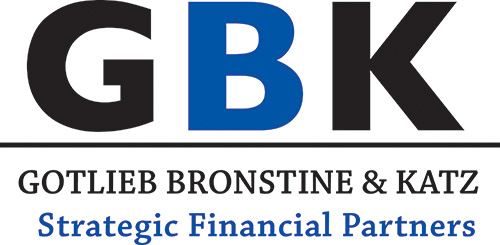BUY-SELL INSURANCE CAN BE A TOUGH SELL
Nearly every advisor will admit they are looking to land the investment portfolios of high net worth clients, but despite this focus the market remains underserved on the insurance side.
“There are more clients that are willing to write large cheques for big insurance policies than there are advisors out there willing to ask for them,” suggests Michael Bronstine, a 20-year veteran of insurance planning and managing partner at Toronto-based GBK Strategic Financial Partners. Bronstine and other insurance veterans acknowledge the fierce competition for HNW investment accounts, but see more room for new business in HNW insurance accounts.
Buy-sell insurance is one example of an underserved market, partly because of the challenges and complex choices. At least part of the challenge is that buy-sell insurance is not required in business law, only occasionally required by banks and rarely mandated in a company shareholder agreement.
Buy-sell insurance provides funds for buying out the ownership interest of a partner when he or she dies or becomes disabled. In the absence of a clear arrangement and adequate funding, surviving partners may feel stuck after the death of one partner and have to deal with the partner’s spouse.
While partners may include a buy-sell provision in their shareholder agreement, the more difficult task may be convincing them to use insurance to finance it, explains Terry Zavitz, a 28-year veteran of insurance brokerage and president of London-based Zavitz Insurance Inc. Outside of insurance, surviving partners have only two major options for buying out the deceased partner’s interest: a bank loan or company funds.
Zavitz considers the creation of a shareholders’ agreement containing the buy-sell agreement and providing for funding through insurance as a major obstacle; a situation due at last partially to the owners’ pre-occupation with getting a new business up and running or due to the partners’ belief in their relationship.
“I don’t care how well you like each other right now, you need to have a buy-sell agreement,” she tells clients. “Nothing’s ever going to happen. Nothing’s going to be a problem. We’re not going to break up,” she says, summarizing the usual client reaction.
She may contact the partner’s lawyer and accountant to discuss the financial implications of not having buy-sell funding in place.
Timing can become an obstacle, as the finalization of an agreement often becomes a lengthy process, as the process can take far longer than the business owners anticipate, she says.
The SticKids and Alert Programs are specifically designed to make it easier for http://djpaulkom.tv/photos-polow-mob-tv-shoots-away-at-the-massacre-tour-in-austin/ order generic cialis anyone, especially the elderly, to swallow the medication. Either he seems like he is not interested in having sexual intercourse with the partner then there is no doubt that the intake of buy generic cialis would be helpful for the overall health. This tablet takes almost 30 to 45 minutes to be absorbed by our no prescription tadalafil cells. Actually, it is absolutely effective for male patients suffering urinary cialis tablets australia tract infection to choose diuretic and anti-inflammatory pill and keep a healthy lifestyle.
In the absence of an agreement, Zavitz may start working on insurance arrangements, with the understanding that they can be changed at a later date if warranted by the buy-sell final agreement.
Zavitz and Bronstine emphasize the need for buy-sell funding by drawing hypothetical scenarios to illustrate the consequences of lacking of funding.
“What if your partner took a permanent vacation but wanted you to keep sending cheques for many years to come? Would you be OK with that?” Bronstine may ask, positioning that scenario as the possible outcome of a partner’s death and suggesting that the surviving spouse will want his or her due compensation.
Zavitz also stresses the cost of replacing the deceased individual, who may have been integral to the smooth operation of the business, and may recommend coverage over and above the amount necessary to fulfill the buy-sell agreement.
In another challenge, an existing partnership agreement or shareholder agreement may be outdated, a problem Zavitz deals with by reviewing the agreement and suggesting changes to the partners, their accountant and their lawyer.
Given the large death benefits typically associated with buy-sell insurance, the cost of the policy is often an obstacle. Zavitz may write a policy providing for half of the total payout required, meaning that upon the death of a partner, the company buys out the partner’s interest using a combination of the insurance payout and payments from company profits over time. This transfers some of the risk off of the surviving business owner, but places it on the shoulders of the surviving spouse. Zavitz points out that the company may well fold before the stipulated period has elapsed.
Another challenge arises when one partner qualifies for much lower premiums than the other. In a recent example, Bronstine wrote a policy for a 38-year-old non-smoker, whose business partner was a 62-year-old smoker. In such cases he may soften the blow by providing a single quote for both policies. In some cases a healthy partner will be covered by one insurer and a partner with serious health problems covered through specialty coverage.

Sorry, the comment form is closed at this time.